Consultations between AUKUS partners and other nations to begin this year, say the Ministry of Defence.
AUKUS is a trilateral security and defence partnership between Australia, the UK and the US, first announced in September 2021.
“It sees the three nations work together on a range of capabilities to support a free and open Indo-Pacific, including a conventionally armed, nuclear-powered submarine capability for the UK and Australia – SSN-AUKUS – under Pillar One of the partnership. Consultation with other countries, including Japan, as potential collaborators on some advanced military capabilities under Pillar Two of the partnership will begin this year.
Australia, the UK and US are considering Japan’s potential involvement in some elements of the Pillar Two programme. Pillar Two includes quantum technologies, undersea capabilities, artificial intelligence (AI) and autonomy, cyber, hypersonic and counter-hypersonic capabilities, and electronic warfare capabilities, supported by innovation and information sharing.”
Partners have always been clear on the intent to engage additional nations in Pillar Two projects as the work progresses. The potential collaborations will complement and build on the close bilateral relationships that all three AUKUS nations have with other countries.
The submarine capability is Pillar One of the AUKUS programme and will always remain a trilateral endeavour. Work is progressing on the submarine programme, with Australia appointing UK company BAE Systems last month to build its SSN-AUKUS submarines in partnership with ASC during a visit by Deputy Prime Minister Marles and Defence Secretary Grant Shapps to Osborne shipyard in Adelaide.
Defence Secretary, Grant Shapps said:
“In a more dangerous world, relationships and partnerships like AUKUS are more important than ever. We have always said we would engage additional nations in our Pillar Two work as it progresses, and collaborating with like-minded countries will strengthen the partnership further. I am committed to a peaceful, prosperous and open Indo-Pacific and to working with partners to grow our capabilities and uphold international rules and order.”
AUKUS nations will assess whether involving like-minded nations like Japan would strengthen the development of capabilities. Consultations will begin this year on where potential partners, including Japan, can contribute to and benefit from Pillar Two work.
“Japan’s potential involvement was announced by UK Defence Secretary Grant Shapps, Australia Deputy Prime Minister and Defence Minister Richard Marles and US Secretary of Defense Lloyd Austin today in a joint statement.
Japan and the UK are already working together with Italy on our sixth-generation fighter jet programme, GCAP, where they have proved effective partners. Last year the UK and Japan agreed a landmark new strategic partnership – the Hiroshima accord. The joint statement comes two weeks after Defence Secretary Grant Shapps and Foreign Secretary David Cameron visited Australia for meetings with their counterparts, and a year after Prime Minister Rishi Sunak, Australian Prime Minister Albanese and US President Biden met in San Diego.”


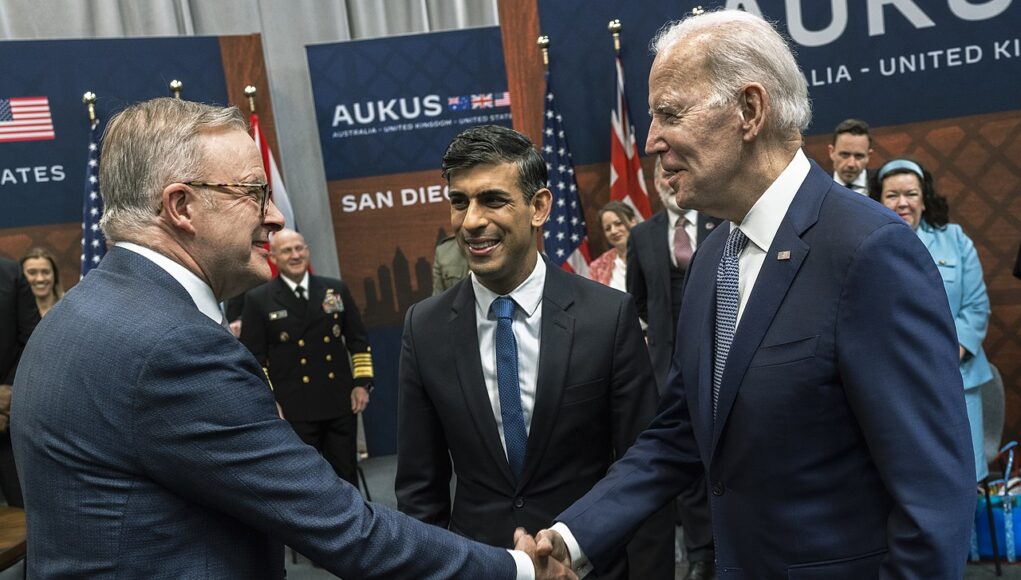



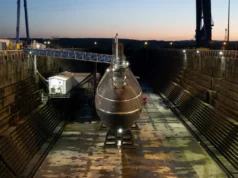
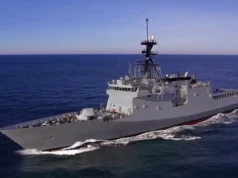
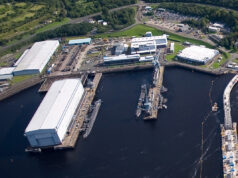


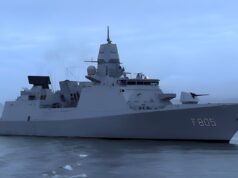


Makes perfect sense, we are leading the GCAP project and both Japan and Italy are proving to be excellent and robust partners. The US has massive ties with Japan and numerous joint projects with an emphasis on AI, ABM and Hypersonic research.
As for Australia, Japan is their neighbour and is also one of their 4 shortlisted partners for the 11 Tier 2 GP Frigates they require. I’d actually go a stage further and say that given the rate of production of the present Mogami class and future New FFM frigates they have to be favourites to win that contract.
If I were the Australians I’d also be keeping an eye on Japanese Submarine developments, just in case the US can’t provide the Virginia Class boats needed to cover the Collins class OOS Gap.
If RAN did need an interim conventional Boat then Japan builds probably the best Blue Water SSK that are suitable for the Pacific around. And again they can churn them out at a fair rate of knots.
Would envision that Japan is simply the first of multiple nations which will petition to join AUKUS Pillar 2 initiatives. New Zealand is an announced prospective candidate and would presume Canada and possibly Singapore and South Korea are indulging in private campaigning. It will prove more interesting when Israel and a majority of NATO requests participation. In reality, very few countries can afford not to participate in the principal technology incubator in the 21st century.Perhaps there will multiple classes of membership. Managing tech transfer and classification issues may prove to be a formidable task.
Interesting mention of GCAP in your post. Have absolutely no evidence to support this contention, but almost willing to wager that there will be some form of future co-development of GCAP and NGAD systems, perhaps driven by spiraling development costs. Could imagine the narrative now–if AUKUS coalition can develop future SSNs then surely successful co-development of (System X) is feasible. Regardless of whether or not it proves to be an intelligent course of action. 🤔
I’m sorry but I’d prefer as little US tech in GCAP as is possible.
We have to collaberate with someone, so would you rather see French tech instead!!!
No. Japan and Italy is fine. The French will stiff us and want too much of the workload and input to protect their companies.The US will just take over completely and if it sees it as a rival and competitor try to kill it or hinder it. Japan and Italy, like us, need this to work and to sell abroad.
There may be more synergy to be gained between the technologies of GCAP and the USN’s F/A-XX, but ITAR will ensure that any cooperation will be kept to a minimum.
What I’m hoping for is that the collaborative combat aircraft, loyal wingman and the like, will be exchangeable between the NATO 6G systems. If Germany and Australia play their cards right they could end up in every bit as strong a position with CCAs as the main players are with the central aircraft.
Thought that ITAR issue re Australia had either been resolved/or was in process via new legislation. Unknown status of British legislation. Could be mistaken.
As I understand it, the hope is ITAR will be relaxed in that the US can more freely share tech with Britain and Australia. However the UK wants to sell Tempest as widely as possible and if it had US hardware in it, I don’t think the proposed trilateral relaxation will allow that. Even if the new rules allowed the UK to share US tech with Italy and Japan (and I’m not sure it would), would it allow that tech to be sold by either of those countries to whomever they wanted?
Furthermore, Britain will be afraid that the US will do what it did to Canada and revoke ITAR exemptions until the UK parallels US export regulations. Many countries, ours included, have been redesigning equipment to get rid of US parts. Creating UK-ITAR in order to be exempt from US-ITAR, would defeat the object of the GCAP exercise. We’ve had enough issues with Typhoon sales blocked by Germany. There’s no way we’d want the slightest sniff of Congressional control over GCAP exports if we can possibly avoid it.
Hmmm…inadvertently, obviously touched a raw nerve. Still believe the ultimate net result, but will keep forecasts private.
Sorry M8 but old saying “as you sow, so shall you reap”, the US decision to not let Japan buy the F22 has pretty well bit the US in its behind.
Not only did it mean Japan is now in GCAP and will not be happy with US involvement , but not adding those export Airframes pretty well priced the F22 into a dead end.
Will be interesting to observe potential export sales of NGAD or F/A-XX. The projected $300M/a/c purchase price, sans O&M costs, will probably severely limit the list of prospective customers. However, believe the ChiComs would be very interested in obtaining one of each! 😉😁
Projected price is for NGAD, not certain whether a cost estimate is publicly available for F/A-XX.
I think that’s a very interesting take. Totally agree, if we get a ‘businessman’ (loosely) back as President US obstructiveness to any competing projects and and technology transfer (at least outwards) will only be more intense even if it is self defeating to the joint defence even the US requires for the future. Big history here ever since being cut out of the nuclear bomb project that we actually instigated and made feasible, then the supposed cross technology exchange in breaking the sound barrier that broke down immediately after they absorbed our technology in the sector. In similar vein but much more recently two of our World leading technology businesses ARM and DeepMind have effectively been absorbed into the US economy and effectively operate at their discretion with only nominal UK influence. You can bet the Microsoft ai hub announced yesterday and being set up by DeepMinds former founder will primarily soak up uk talent and ideas to be be better exploited back in Redmond or California where the very same figure has more recently deemed a better environment to establish new start ups.
In reality Britain needs to play this cute (breaking away as far as possible from US technological hegemony) and using the likes of Japan, Germany, Australia and others to strengthen our hand in striving for at least some level of technological independence from US cherry picking. Sadly that has suffered in the past from division and mutual distrust amongst partners let’s hope this is an opportunity to put that right for mutual benefit. It’s vital I believe if there is going to be a proper balance and mutual respect in Western alliances, after all the likes of Trump is telling us we should all take more responsibility, in my view that shouldn’t simply mean feeding the US defence and technology sector, be it with orders or one sided intellectual property benefits.
Canada is looking into membership in AUKUS, announced just yesterday by the PM.
Thanks, missed the public announcement. 👍😊
I don’t see that happening to be honest, Canada needs to actually fulfil its NATO commitments before anyone will take them seriously.
Nothing less than 2% of GDP will make the cut 🤔Even after yesterday’s announcement of extra funding it’s only 1.33%.
The extra funding will be at 1.76 % by 2029-30. Considering resistance in the past to raise defence spending by any Canadian Gov, this is good news.
BTW, congratulations to Canada for a step in the right direction (eventually a projected 1.76% of GDP). Not quite the agreed NATO minimum defence/defense expenditure, but a definite improvement. 👍😊
Japan is a good partner choice but not exactly Australia’s neighbour. China is about the same distance from London as japan is from Australia. The Japanese and Australians do however get pretty good bang for buck from their defence procurement budgets especially for respective navies and airforces.
As F35 demonstrated…big concerns on ‘shared’ projects with USA Inc.
I did smile at that though I guess strategically they are indeed neighbours as they are both with the US in reality. The World is certainly getting smaller.
For all of the PLA’s size, capabilites & growth, if most of her neighbours threatened by her aggression unite they at least match the threat. At least in East Asia nobody has been pursueing cuts & minimizing force levels for the last decade+.
Are you joking, no one is Asia has been making cuts for the last decade because their budgets were close to f**k all.
Japan barely scrapped 1% of GDP on defence, it made Germany look like a well funded force.
The Philippines has not had an Airforce for most of the last twenty years.
When China invades Taiwan, Asia will have it’s Ukraine panic moment.
Not wrong, though whatever 1.?% Japan was spending over the years it generated a force that would make mincemeat of any Russian force it came into contact with if its human assets operated as expected. Its economy having been number 2 in the World till recent times and not having to support a nuclear element and indeed a history of using its budget and industrial might rather effectively and financially efficiently over that time, has created a force we can only dream of in many regards and with a population of 122 million v Russias 144m it puts into perspective the competing potential even if China’s enormous population and potential leaves open the question of if and how they could bring that into effective use esp after years of a one child policy and the aging effect of that.
Japan anyway is going to seriously up its defence spending now as its society becomes more accepting of the overturning of the long held limits on the military.
Except China and North Korea :). TBH most countries in the far east have other priorities, countries like Cambodia are essentailly in the hands of the Chinese so don’t need to spend much. Pretty much all of them will either need to capitulate to China or seek help from Western aligned nations… best they don’t hold their breath on that.
Hi Jim, I replied a few hours after you posted but it’s stuck awaiting approval.
Well Japan, South Korea and one might add Vietnam perhaps in its own effective manner would be very effective if united against China. But one has to note that South Korea would be completely tied up with defending g itself against Nth Korea which would inevitably be involved in any conflict with China. Presently without strong US support any such conflict would almost certainly be more negative than positive to the West though a lot will depend on just how effective Chinese forces would be when put to the test and equally how effective Japanese defence forces would be defending against it. South Korea is a serious question mark despite its great technological superiority.
If India comes into the equation then the balance is certainly, and will increasingly tip the balance against the PLA somewhat and indeed in ten years with Indian expansion militarily and technologically. the scenario may be very different though difficult to nail down presently.
Canada seems to be a far more likely candidate to join AUKUS in the short-term. Not being a “Five Eyes” participant, Japan has a lot of hurdles to jump before it will tick all the boxes.
Canada and NZ are reluctant to have a military at all. They probably wouldn’t if it wasn’t required for NATO participation.
There are a lot of Canadians that have a very strong support for the military and its history and its continuance. More so after the Russian invasion and the Chinese diplomatic incident. There are also a lot of Canadians who would prefer not to have an extensive armed force. You have those people in every western state that I have seen who don’t see the big picture in the world.
Canada is seeking membership in AUKUS announced just yesterday by the PM.
I’m not surprised.
There are obvious pillar 2 (advanced high tech capabilities) benefits for Canada, and even the pillar 1 (nuclear powered subs) must be of interest as options for replacing the Victoria class SSK’s are considered.
If Canada joins AUKUS, New Zealand is left in a difficult position. Whilst AUKUS and 5 Eyes cover different areas, its reps will be asked to “leave the room” when ministerial level meetings reach some agenda items.
Trying to adopt a Swiss type “neutrality” just doesn’t seem viable for NZ in the current world environment. Even Sweden has accepted that it now has to pick sides. If Australia and the USA were at war with China, could NZ really claim “its not our problem”?
The interest in pillar 1 to Canada is also now about timing. As you said, the Victoria class is getting long in the tooth. AUKUS pillar 1 can address some of that. Pillar 2
Canada is a shoe in for that.
Canada could have a mix of SSK and SSN for the fleet
Arctic sovereignty for Canada is a top level armed forces and gov concern. The Canadian public is also more aware of it.
New Zealand has some decisions to make.
SSN-AUKUS looks a good fit to Canada’s needs, and a rapid sign up would both allow it influence the design whilst there is still some flexibility, and also allow its suppliers to compete for orders from almost the start. The later would be welcome due to the current lack of industrial capacity and competition in many areas. Also a class of 16+ subs (7 UK, 5 AUS, 4 CAN) would benefit from huge economies of scale on expensive components such as the reactor. A unit cost around US$2 bn (2024 money) might also attract interest from other potential buyers (Japan?) given that a large SSK now costs about US$1 bn.
There was also interest for the Korean KS-III SSK subs by Canada. 12 subs was what DND was looking for. They are fine looking subs and the interest in them is still there. A mix of these and the AUKUS class SSN would make for a good sub force for Canada. That kind of funding would also put Canada from the projected 1.76% for 2029 to easily 2%.
The T26 project is already at the $60 billion mark for the lifetime of the 15 Frigates and the F35 program is around $25 billion.
The Canadian public ( gov too) is starting to realize that not all counties in the world ‘like’ Canada.
TBH unless Japan and others need to sign up quick or its not happening. The opposition is already co-authoring papers with European allies on defence co-operation and this will be the go to in the future, nothing wrong with that we already do this on some weapons systems. AUKUS may not even last out the decade imo.